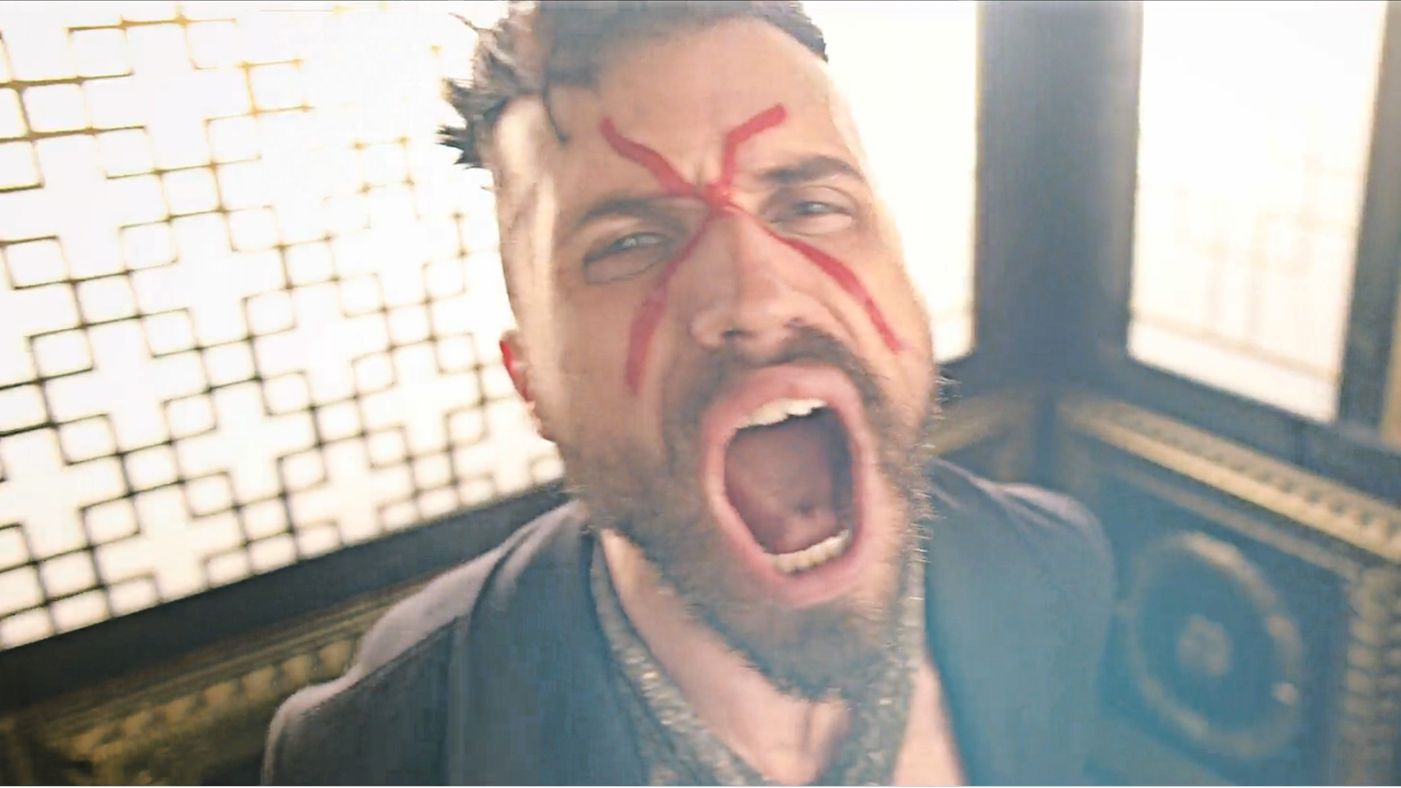
(Featured image by Tyler Glenn)
In 2014, Tyler Glenn, lead singer of the popular musical group Neon Trees declared himself to be gay and a practicing Mormon (member of The Church of Jesus Christ of Latter-day Saints) in a Rolling Stone article. Tyler was also a guest of The Cultural Hall Podcast (Episode 123- click here to listen) where he discussed his experiences in the faith, as a missionary, and as a public figure. His candid declarations at that time seemed to showcase a sincere love for his faith while also expressing some of the inherent conflicts or challenges that he faces being gay in a faith that has had an evolving relationship and mixed reception with the LGBTQ community in the last decade.
At one point all the members of the Neon Trees were considered members of the same church, with Elaine, the female drummer, even being featured in a promotional spot as part of the Church’s “I’m a Mormon” campaign. However, with Tyler Glenn’s recent article in Rolling Stone where his first solo artist video “Trash” is discussed, we see a very different Tyler Glenn than just two years ago, at least as far as his public experience with his once beloved faith.
Those who may not be familiar with The Church of Jesus Christ of Latter-day Saints, (or Mormon Church as is it sometimes referred) its doctrines or practices, will likely not understand some of the video’s cultural references, or the impact that these deliberate statements have with respect to Tyler Glenn’s and the faith. As an openly gay-mormon, Tyler Glenn has recently been public with his disagreement, if not disgust, over a church policy declaring that the entering of a gay-marriage as grounds for being excommunicated from the church, as well as the policy that children who live under the care and guardianship of a parent living in a same-gender relationship must wait till they are 18 years old before they are allowed baptism into the faith.
There has been a fair amount of controversial opinions shared with regard to this policy including the claims that numerous suicides of youth in the church are the result of what some view as a divisive policy. While difficult to quantify, these allegations remain largely speculative at best. Since this policy change, however, Tyler’s public view of the church has become more aggressive if not outright antagonistic. Tyler’s video, “Trash,” is his most publicly negative statement to date in what can only be seen as growing opposition or displeasure with his once cherished faith. Those who are familiar with the cultural references in his video see the message perhaps a bit louder, and a bit clearer than those not familiar. Tyler himself even recognizes that of his fellow band members of Neon Trees, he is“not sure if they totally support the content.”
While some will speculate on the potential results of this video’s release, “Trash” is statement piece that would have likely gone under-noticed by the mormon world at large without the video as much of the songs lyrics could be taken quite generically. The video seems to be where a bulk of the antagonistic content toward the faith is driven home.
For those that have questions about some of the paintings on the walls of the video, even some of the other statements made by Tyler, either in lyric or in physical gesture, it is likely that a blog post will be insufficient to explain the bigger picture of his statement within a mormon cultural context. But for now, just know that with his intentionally antagonistic messages range from commentary on the founding events of the Church’s established history, to the profane use of sacred religious symbols, Tyler leaves no doubt as to what he feels could be the result that these statements could bring to him as is demonstrated by the drawing of an “x” on his face at the end of the video. Within the church “lingo,” being “ex’d” or “x’d” is short for being excommunicated. One could interpret this video as Tyler’s declaration that after all he has put into this video, he is aware that such a disconnection with the church as a result is a very real possibility.
For the average Latter-day Saint or member of the church we don’t rejoice in those who feel so wholly disconnected from the faith they once loved and even proselyted. While the church holds its standards based on doctrines and practices revealed by God through inspired leaders and therefore does not seek to change with the winds and waves of public opinion or pressure, we also seek as much as is possible to be inclusive. Members of the church experience a variety of challenges ranging from issues of chastity, drug use, depression, dishonesty, or even abuse, and we don’t seek to turn away those who are earnestly seeking to find a way to improve their lives and become more inline with the teachings of Jesus Christ as found in the Holy Bible and other scriptures as part of the Church’s canon. As for Tyler Glenn, we still hold a great deal of compassion for what is clearly a difficult challenge to his faith.
Nick Galieti is an experienced podcaster as both producer/host of The Good Word Podcast, and was named the recipient of the 2015 John Taylor: Defender of the Faith Award by FairMormon for his podcasting effort with that organization. Nick is the voice of Book of Mormon Central’s “KnoWhy” podcasts. Nick has directed and produced two documentaries on the life of Joseph Smith Jr., Picturing Joseph, and Murder of the Mormon Prophet.
Nick is also a published author of the books Tree of Sacrament, and The Exaltation Equation. A past guest of The Cultural Hall (click here to listen). Nick was born in Southern California, and served a mission to the Baton Rouge, Louisiana. Nick is a freelance sound engineer of over 15 years, is married, has 5 daughters, and now lives in West Valley City, Utah.

